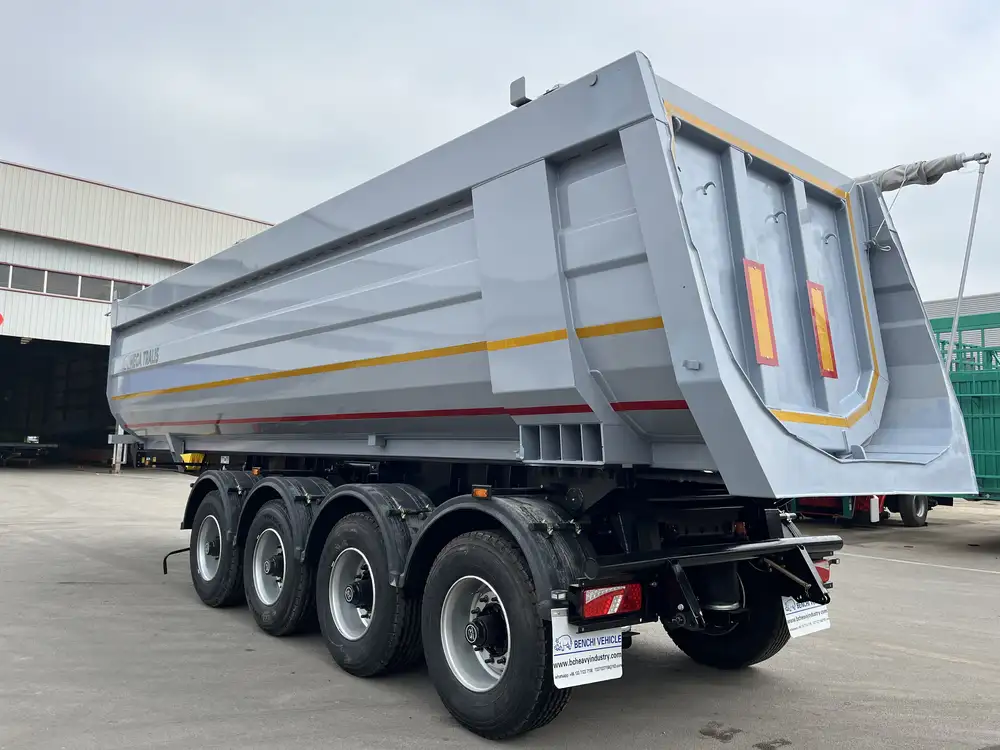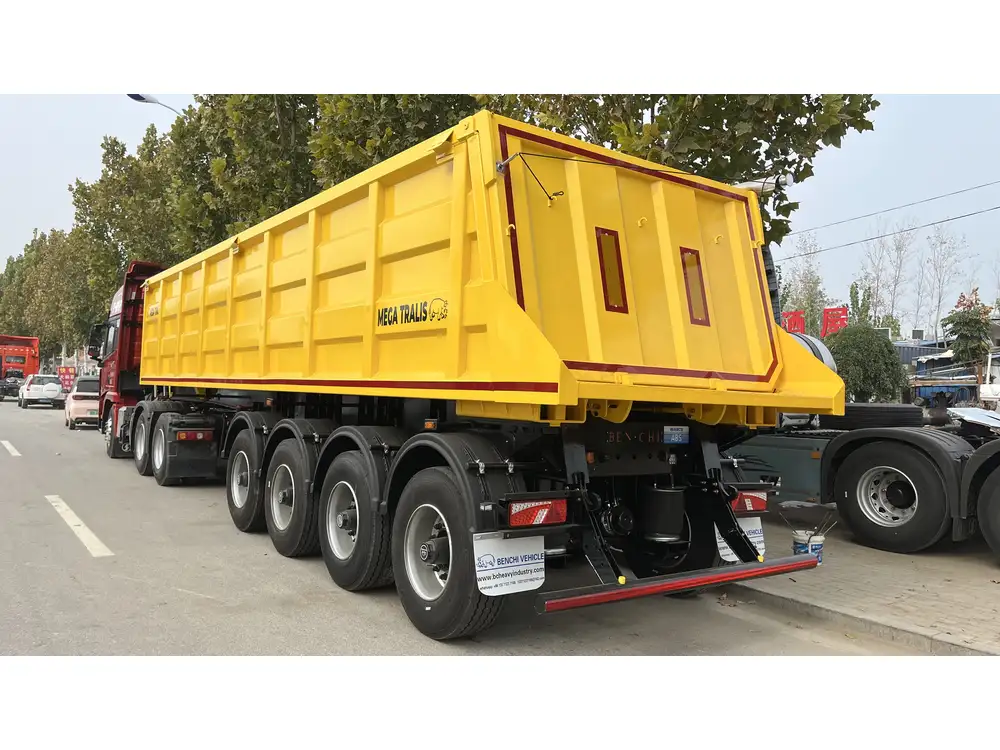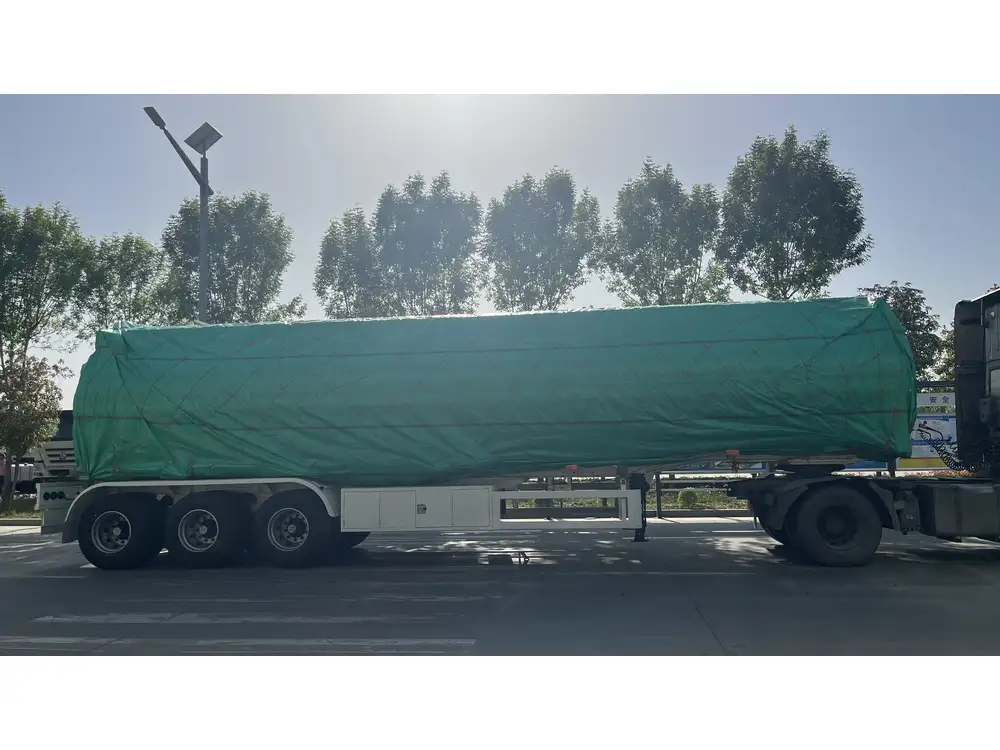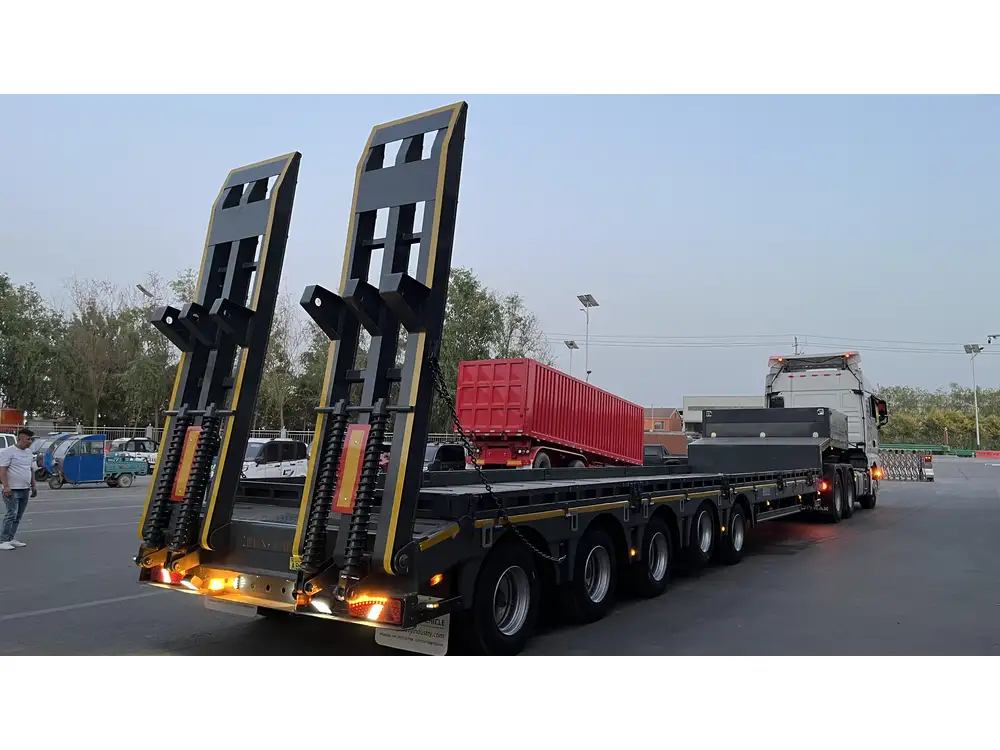Car carrier trailers serve an essential role in the logistics and transportation industry, primarily designed for the secure transportation of vehicles from one location to another. Whether you’re a vehicle dealer looking to expand your fleet or an individual needing to relocate a car, understanding the intricacies of car carrier trailers is vital. This article aims to dissect every element of car carrier trailers, highlighting their types, functionalities, specifications, and considerations for users aspiring to make informed decisions.
Understanding the Car Carrier Trailer: Definitions and Essentials
What Is a Car Carrier Trailer?
A car carrier trailer, also known as an auto transport trailer, is a specialized vehicle transportation platform primarily intended to carry vehicles in a safe and efficient manner. These trailers can accommodate multiple vehicles and come in various configurations to suit different transportation needs. The versatility of car carrier trailers is crucial for businesses in automotive logistics, allowing for effective transport whether for individual cars or bulk shipments.

Core Features of Car Carrier Trailers
| Feature | Description | Benefits |
|---|---|---|
| Capacity | Typically accommodates 2 to 10 vehicles, depending on design. | Facilitates transport of multiple vehicles, thus optimizing shipments. |
| Design | Available in open and enclosed configurations. | Open designs offer visibility and reduced weight; enclosed designs provide protection from elements. |
| Construction Material | Often made from steel, aluminum, or a combination of both. | Durability and reduced vehicle weight, enhancing fuel efficiency. |
| Loading Mechanism | Features ramps or hydraulic systems for easy loading and unloading. | Simplifies the process, reducing the risk of damage during transport. |
| Braking System | Equipped with advanced brake systems for safety. | Ensures reliable stopping power, critical when transporting multiple vehicles. |
Types of Car Carrier Trailers
Understanding the various types of car carrier trailers is critical for selecting the one that best fits your needs.
1. Open Car Carrier Trailers
Open car carriers are the most common type in the industry. They feature multiple rows for vehicle placement and are widely utilized due to their lower costs and lighter weight.
Advantages:
- Cost-effective: Generally less expensive due to simpler construction.
- Ease of Access: Ideal for loading and unloading multiple vehicles quickly.
- Widely Used: Commonly used for dealerships and auctions, making them readily available.
Disadvantages:
- Exposure to Elements: Vehicles are vulnerable to weather conditions and road debris.
- Limited Protection: Less security against theft compared to enclosed trailers.

2. Enclosed Car Carrier Trailers
Enclosed car carriers provide complete protection for vehicles during transport. They are often used for high-value cars, classic automobiles, and show vehicles.
Advantages:
- Enhanced Protection: Shields vehicles from harsh weather, dirt, and potential theft.
- Professional Appearance: Offers a more polished image for businesses transporting luxury or performance vehicles.
Disadvantages:
- Higher Costs: More expensive due to additional materials and construction complexity.
- Increased Weight: Heavier than open trailers, which may impact fuel efficiency.
Comparison Table: Open vs. Enclosed Car Carrier Trailers
| Feature | Open Car Carrier | Enclosed Car Carrier |
|---|---|---|
| Price | Lower cost | Higher cost |
| Protection Level | Minimal | Extensive |
| Weight | Lighter | Heavier |
| Loading Capacity | Generally more | Usually less |
| Ideal Use Cases | General transport | Luxury and classic cars |
Key Specifications to Consider
Choosing the right car carrier trailer involves looking at specific technical details. Here’s what to consider:

1. Weight Capacity
Assessing the weight rating of the trailer is critical. This includes both the Gross Vehicle Weight Rating (GVWR) and the maximum payload capacity. Each vehicle, especially larger SUVs or trucks, will have different weights, and ensuring the trailer can accommodate these without exceeding limits is crucial for safety and legal compliance.
2. Dimensions
Evaluate the trailer’s dimensions, as they must comfortably accommodate the vehicles intended for transport. Consider aspects like:
- Length: How many vehicles can be transported?
- Width: Ensure it meets the width requirements of the vehicles being loaded.
- Height: This is especially important for enclosed trailers to accommodate taller vehicles.
3. Axles and Suspension
Most car carrier trailers feature either a tandem or triple axle configuration. A tandem axle allows for greater stability, especially with heavy loads, while triple axles can provide additional support and weight distribution.

4. Brake Systems
Look for trailers equipped with electric brakes or air brakes, which are designed to enhance safety and control—crucial aspects when transporting multiple vehicles.
Benefits of Using Car Carrier Trailers
Increased Efficiency in Vehicle Transport
Utilizing car carrier trailers dramatically increases transport efficiency. Businesses can move multiple vehicles simultaneously, reducing costs per unit. This efficiency is crucial for fleet operations and logistical management.

Cost-Effectiveness
When transporting vehicles over long distances, car carrier trailers provide a cost-effective solution. By maximizing the number of vehicles transported per trip, operational costs associated with fuel and labor are considerably lowered.
Enhanced Security Measures
Car carrier trailers come equipped with advanced security features such as:
- Locking Mechanisms: Secured tie-downs to keep vehicles in place.
- GPS Tracking: Some modern models offer tracking capabilities, allowing for real-time monitoring of vehicle locations.
Common Challenges with Car Carrier Trailers
While car carrier trailers are indispensable in vehicle transportation, they come with challenges that users should mitigate.

1. Loading and Unloading Difficulties
Proper loading and unloading techniques are essential to prevent damage. Users should consider the following methods for effective operations:
- Using Flat Ramps: Ensure ramps are long enough to lessen the incline when loading or unloading.
- Training Personnel: Proper training on maneuvering vehicles onto trailers can prevent accidents.
2. Maintenance Requirements
Regular maintenance is crucial to ensuring the longevity and performance of car carrier trailers. Key areas include:
- Brake Checks: Regularly inspect and maintain brake systems for optimal performance.
- Tire Status: Keeping tires well-inflated and in good condition is vital for safety.
- Frame Inspection: Periodically check the trailer’s frame for any signs of wear or damage.
Investing in a Car Carrier Trailer: What to Know

Factors to Consider Before Purchase
Deciding to invest in a car carrier trailer involves thoughtful deliberation of several factors, including:
- Transport Needs: Assess the types and volume of vehicles you regularly transport.
- Budget Constraints: Analyze your available budget relative to your transportation requirements.
- Operational Scale: Consider whether the trailer fits your long-term operational needs.
Leading Manufacturers in the Industry
When investing in a car carrier trailer, consider reputable manufacturers known for their durable and high-quality products. Some of the notable brands include:
- Big Tex Trailers: Renowned for robust construction and variety.
- Ultimate Car Hauler: Offers premium trailers with innovative features.
- Featherlite Trailers: Known for lightweight designs and exceptional customization options.
Maintenance and Service
Choosing a manufacturer that provides excellent after-sales service can save owners time and money, supporting ongoing maintenance needs and ensuring trailers remain transport-ready.

Conclusion
In conclusion, understanding the scope of car carrier trailers—from the types available to the specifications and considerations—is crucial for optimizing vehicle transport procedures. Whether you are a dealer, an individual, or a logistics provider, choosing the right trailer can significantly impact efficiency, costs, and the overall success of your operations.
By evaluating the key features outlined in this guide, you can make informed decisions that not only meet your vehicle transportation needs but also enhance your organization’s operational capabilities. Each detail, from the structure and design to the safety features, plays an indispensable role in ensuring vehicles are delivered safely and efficiently across distances.



